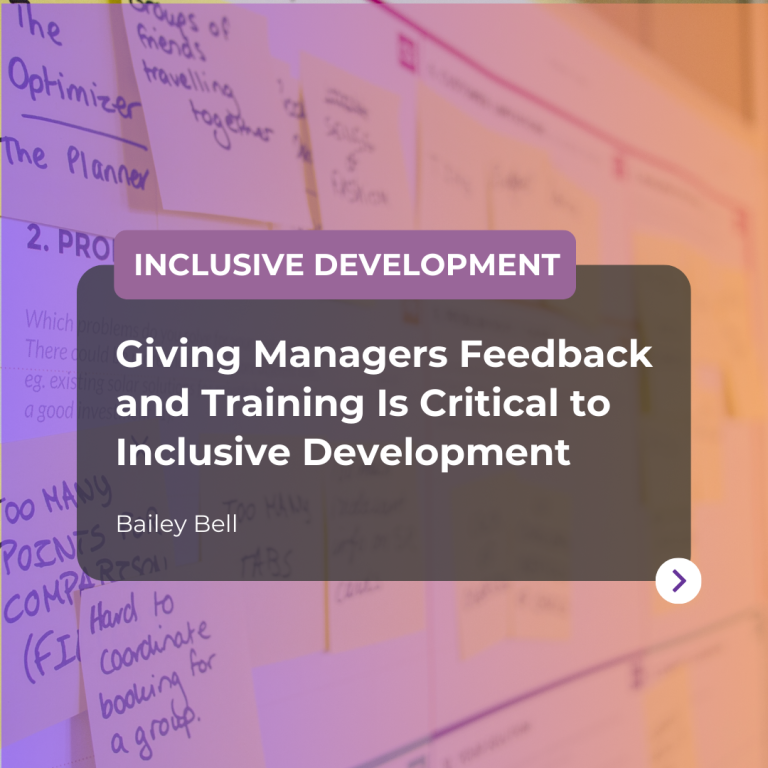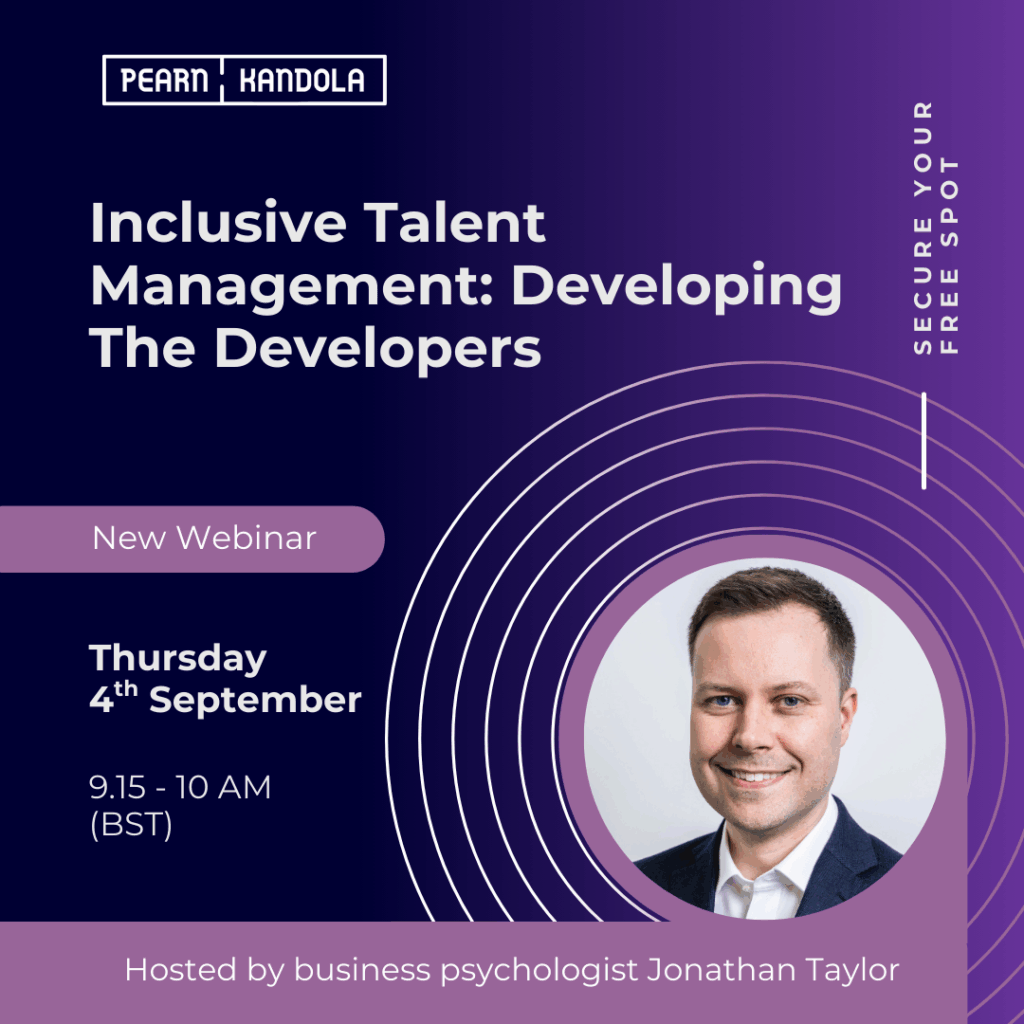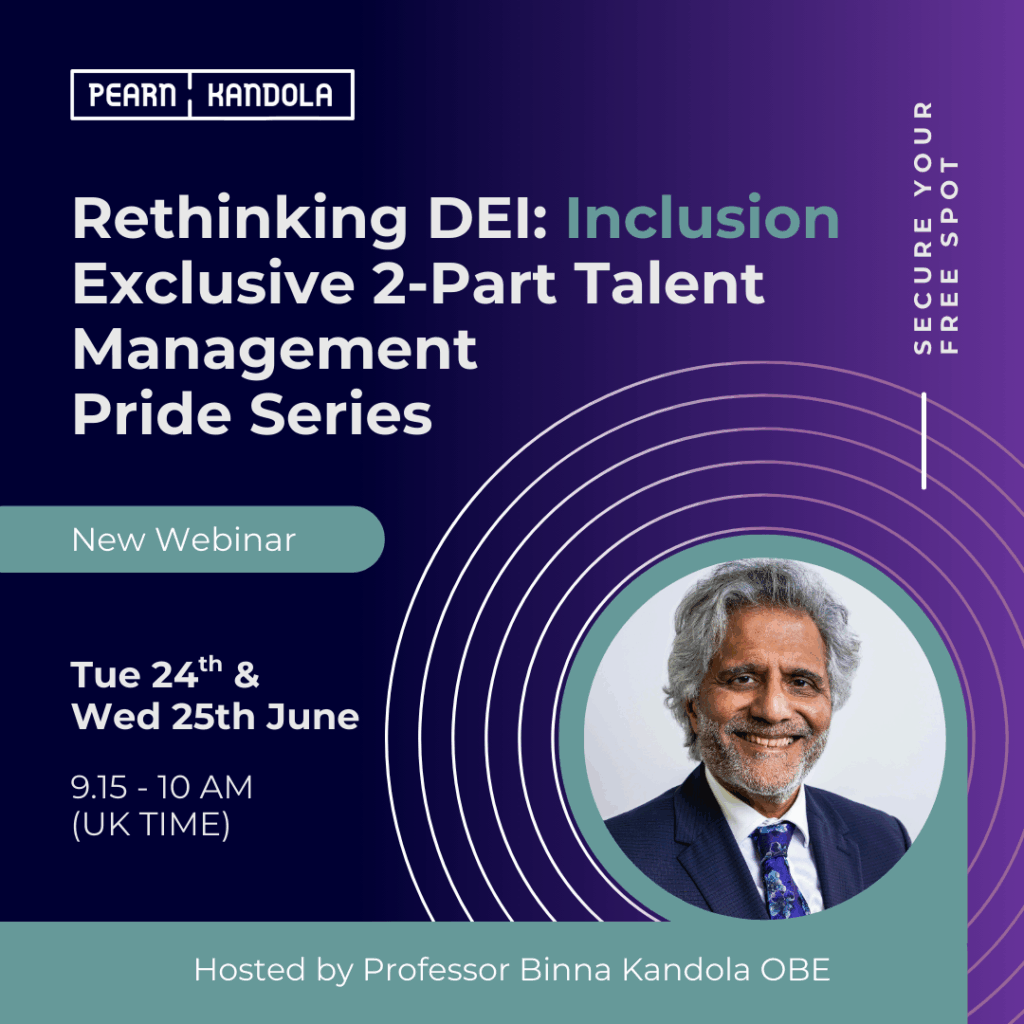As a business psychologist with specialist experience working with organisations at various stages of the employee lifecycle, I often hear that these organisations are struggling to improve diversity at senior levels.
They tell me that their succession pipeline is not as diverse as they would want it to be and that they would like support in developing their talent to solve these issues.
When I speak to employees in these organisations, I’m able to get a fuller picture.
Employees often express frustration that they lack useful feedback to understand what skills they need to develop to progress.
They state that they do not have valuable development opportunities to build and showcase their skills due to biases that managers display towards certain team members, favouring their go-to people.
They also express concern that their managers are unequipped to provide useful feedback and that they are often unaware of the impact of their approach.
The Typical Approach
The usual approach I see from organisations is to focus on creating development programmes for underrepresented groups to develop their skills, build their confidence and personal brand, and enable them to consider how to build their profile.
Now, this does make sense as if organisations want to have a skilled talent pipeline, they need to invest in building the skills of those who they deem as talented.
However, the risk with this approach is that it focuses purely on the individual without considering the environment around them, for example, the support they receive from their managers.
Thus, these employees may develop their skills, but their managers may have go-to people in the department meaning that they never get opportunities to showcase their skills or managers may be ineffective in supporting and advocating for their team members.
What I find in organisations is that managers and HR teams are often unaware of how effective managers are at having development conversations and providing fair opportunities for team members.
The Impact The Usual Approach Has
The impact of this approach is that:
- Employees continue to feel frustrated that they do not have valuable opportunities to grow as their managers and the existing processes in the organisation have not changed.
- These targeted development programmes could make employees feel singled out; that they are the problem, which can lead to feelings that they need to prove their worth, anxiousness, and stereotype threat.
- Employees may feel that they have wasted their time and effort and the organisation is not serious about improving diversity and inclusion as they have not invested in addressing the problem.
- Managers miss out on the opportunity to develop their understanding and skills in inclusive development.
- The organisation fails to realise and leverage the potential of its diverse staff, thus meaning that its talent pipeline and makeup of senior leaders remain the same. The wider impact of this is that at senior levels there is a lack of diverse perspectives shaping solutions and strategies.
What Approach You Need Instead
Organisations need to think beyond development programmes if they are to improve outcomes for a diverse range of employees.
Often, managers are provided with a process for performance management that they are expected to follow, however, some key ingredients may be missed, which leads to managers not being able to follow the process or make improvements to be more inclusive and effective in developing team members.
The key ingredient here is providing managers with insight and training. Without insight, it is difficult for managers and their HR teams to understand how effective they are in developing their teams and being inclusive in doing so. However, by providing insight managers are likely to be more motivated to act, to make change in the areas that matter most for their teams.
How Managers Can Gain The Insight They Need
So how can managers gain insight and improve their effectiveness in developing and supporting their teams?
Providing regular 360 feedback to managers
This enables them to understand how their team members, colleagues, and peers see them. This is particularly helpful if there are items relating to fairness and inclusivity especially as sometimes at work managers may be more inclined to provide development opportunities, support, and advocacy for some members of the team more than others. For example, those who are similar to them.
Provide personality feedback tailored to inclusive leadership
This enables managers to understand whether their natural preferences may help or hinder their tendencies around development.
Provide practical training
This enables managers to build their knowledge around their development areas identified in the insight phase. It can allow equipping managers with tools and techniques to approach the development of their team members inclusively. To enhance the effectiveness of this training, it should be practically focused and managers should have the opportunity to apply their learning during the session.
If you’re looking for expert guidance with leadership development then contact us via email: info@pearnkandola.com







